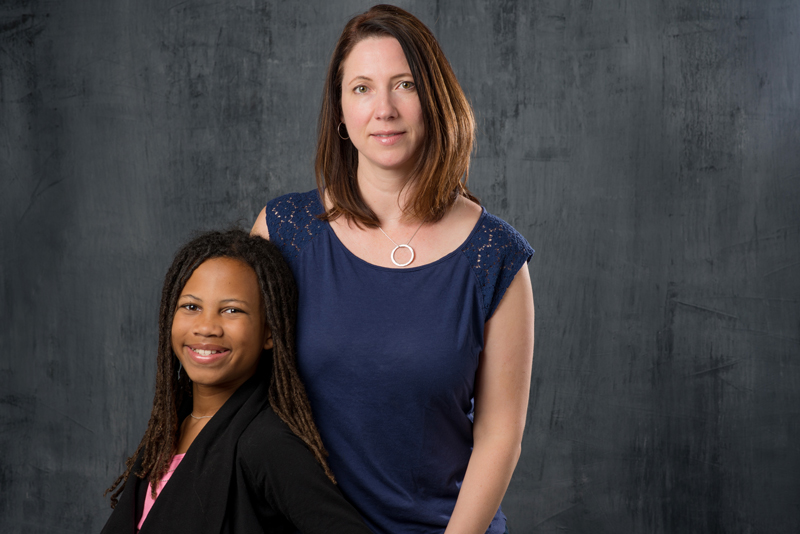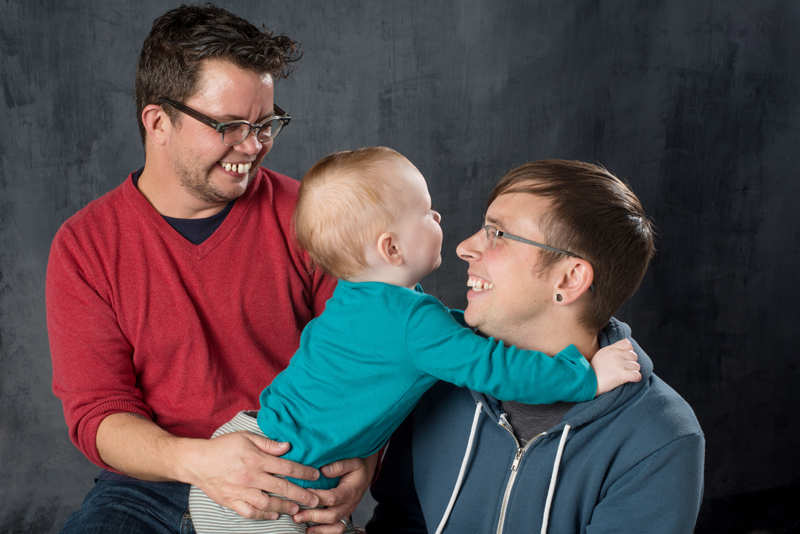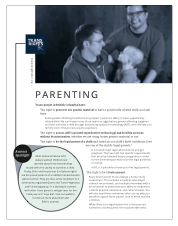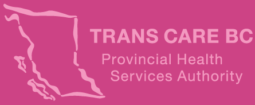Update: For information regarding the addition of Gender Identity and Expression to the 2016 BC Human Rights Code, and to the 2017 Canadian Human Rights Act, please visit the Explicit Protection page.
TRANS FAMILY
Trans people in British Columbia have:
- The right to preserve our genetic material to have a genetically-related child at a later time.
- Some gender-affirming treatments may impact a person’s ability to have a genetically-related child. We can freeze some of our sperm or eggs before gender-affirming surgeries and later conceive a child through assisted reproductive technology (ART), with the help of a fertility clinic. This process is quite expensive.
- The right to access ART and fertility services without discrimination, whether we are using frozen genetic material or not.
- The right to be the legal parent of a child and listed on a child’s birth certificate if we are one of their ‘legal parents’
- It is crucial to get legal advice before you get pregnant. The law in BC has specific requirements that must be followed before pregnancy in order for the intended parent(s) to be the legal parent(s) of a child.
- In BC, it is possible to have up to five legal parents.
- The right to be a foster parent.
- Every foster parent must undergo a home-study assessment. This includes a medical assessment, criminal record check, and multiple interviews with a social worker to determine your ability to respond to a child’s physical, emotional, and cultural needs. You will also need three references who can say why you would be a good foster parent. One of these must be a relative.
- While there is no legal reason that a trans person cannot be a foster parent, the social workers who ultimately decide who gets to become a foster parent have a lot of discretion. You may need to help educate the individual who is doing your home-study if they have inaccurate beliefs about trans people. You should also be aware that if you are living stealth and have not changed your identity documents, there is a risk that you could be outed by the home study process.
- The right to adopt Adoption procedures may allow birth parents and guardians to approve or prevent an adoption.
- You may be interested in adopting a child who is in government care, a child whose parents have decided to give the child up for adoption, a child in another country, or the child of a relative.
- You can adopt a child on your own or with a partner.
- Most (but not all) adoptions will require a home-study assessment to ensure that the prospective parents are able to meet the needs of a child. This includes a medical assessment, criminal record check, and multiple interviews with a social worker to determine your ability to respond to a child’s physical, emotional, and cultural needs. You will also need three references who can say why you would be a good adoptive parent. One of these must be a relative.
- While there is no legal reason why a transgender person cannot adopt a child, some of the requirements for adoption may allow discriminatory attitudes to prevent an adoption. For example, the consent of the child (if the child is 12 years old or older), the child’s parents, and the child’s guardians is required before an adoption of a child who is not in care can take place. There is no law stopping people from refusing to consent to an adoption because the prospective parent is trans. As a result, some trans people may find it more difficult to obtain the necessary consents to adopt a child directly from the child’s biological parents. It may be easier to adopt a child who is in government care after the death or disappearance of the birth parents, a child who is older, or a child who has special needs.
- A licensed adoption agency or social worker can help you explore your options.
- The right to the same child parenting rights (previously known as custody rights) as people who are not trans. When a judge is deciding who will get parenting rights, the decision is made on the basis of ‘the best interests of the child’. That said, there is always the risk of running into a transphobic judge who will find a reason to give more parenting rights to the non-trans parent. See below for steps you can take to protect yourself.
How can you stand up for your rights?
- If you have been discriminated against by an ART clinic because you are trans, you can file a human rights complaint .
- If a social worker has discriminated against you during the fostering or adoption process, you can speak with their team leader to try to resolve the issue. If you are not satisfied with the response you receive, you can file a human rights complaint . Get legal advice.
- If you have separated from a co-parent of your children and want to protect your parenting rights (to have the children live with you part or all of the time), you should start by getting legal advice from a family law lawyer who is familiar with trans issues.
- Unless you are able to reach an agreement with your ex about who will have the children and when, you may end up having to go to court. In determining where the children will be, a court must consider only the ‘best interests of the child’. To protect your relationship with your children, maintain a strong relationship with them and see them as much as you can if they are not living with you after you separate from your partner.
- Address parenting arrangements immediately because the longer a situation is in place, the harder it is to change.
- Talk to a lawyer who can advise you about non-court options such as mediation or collaborative family law instead of going to court.
- Keep notes. You may have to prove your connection to your children, your time with them, and their regard for you. It is best to keep a calendar or journal with dates and details of your relationship with the children.
- If your ex is transphobic, you may be able to argue that they should not be allowed to be the children’s primary parent because they are turning the children against you. Keep record of any transphobic comments or behaviours by your ex.
- Don’t involve the children in the dispute. Be as open to negotiation with your ex as you can possibly be.
- If you end up in court, consider having your doctor or another ‘expert’ appear to support your case and counter any misperceptions the judge may have about trans parents (such as the idea that being trans is an illness).
Who can you go to for help?
- Queer and Trans* Pregnancy and Parenting Group on Facebook This is a Vancouver-based peer support group that meets regularly.
- For a free legal assessment of your situation, contact The Catherine White Holman Wellness Centre . Email lawyer@cwhwc.com to book an appointment. CWHWC has a legal clinic for trans and gender diverse people twice a month. There is a waitlist. Clinic lawyers are not able to represent you, but they can give you a list of lawyers who specialize in human rights complaints. If you cannot travel to the Catherine White Holman Wellness Centre, you may be able to set up an appointment by Skype. Another organization called Access Pro Bono has over 75 legal advice clinics throughout the province. Not all Access Pro Bono lawyers will be familiar with trans legal issues. For more information about Access Pro Bono and the programs it offers, or to find a legal advice clinic in your area, go to: accessprobono.caor call: 1-877-762-6664.
- To find a lawyer, call the BC Branch of the Canadian Bar Association at 604-687-3221 or 1-800-663-1919 (Monday to Friday, 8:30am to 4:30pm). They can give you the name of a lawyer who does family law, and who will have a consultation with you for up to 30 minutes for a fee of $25 plus tax. Make sure the lawyer has experience with transgender parents.
- To find the contact information for a lawyer whose name you already know, you can use the Lawyer Lookup tool.
Resources:
- For help finding trans-friendly service providers in BC, call Trans Care BC at 604-675-3647 or 1-866-999-1514 (toll-free in BC).
- Trans Family Law Project by the LGBTQ Parenting Network.
- Transforming Family: Trans Parents and their Struggles, Strategies and Strengths by Jake Pyne. (2012).
- Choosing Children by barbara findlay QC. To download it for free, click here.
- For information about becoming a foster parent, see Welcome to Foster Care.






